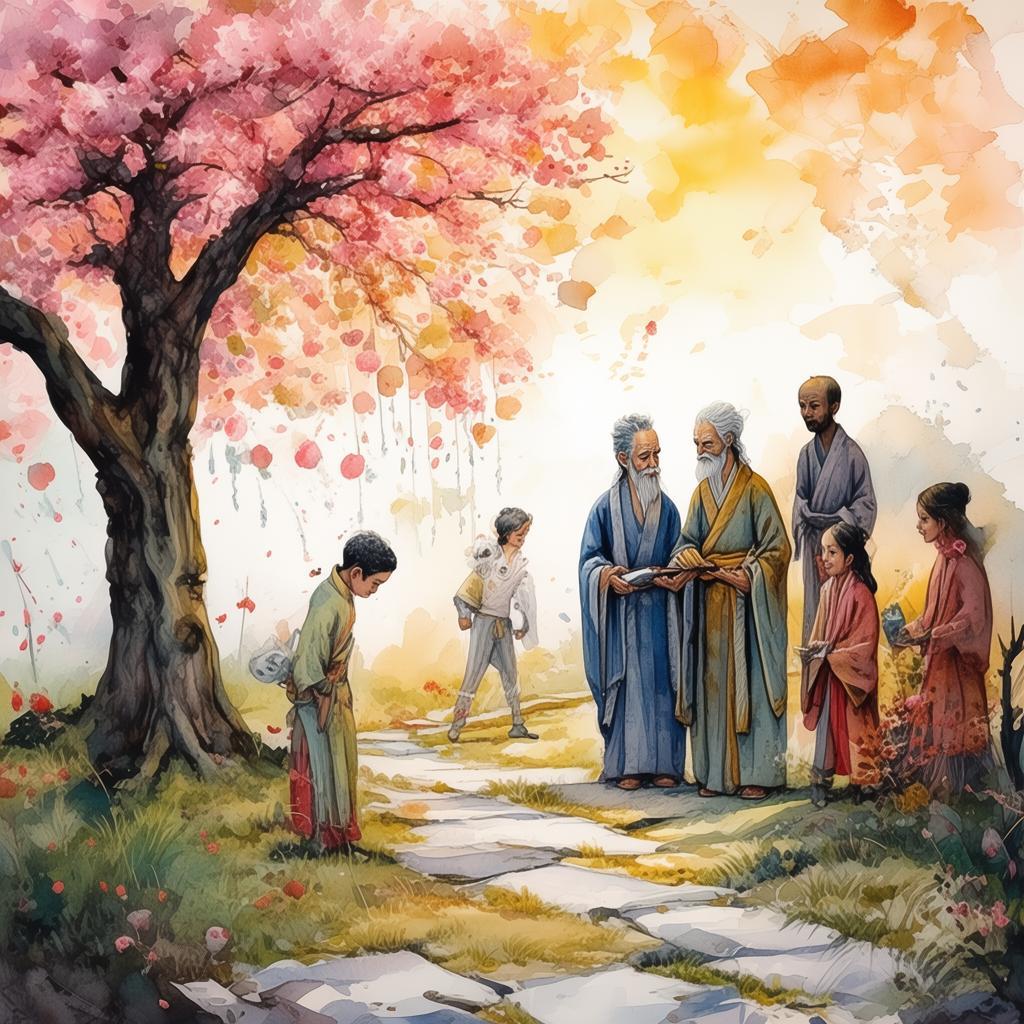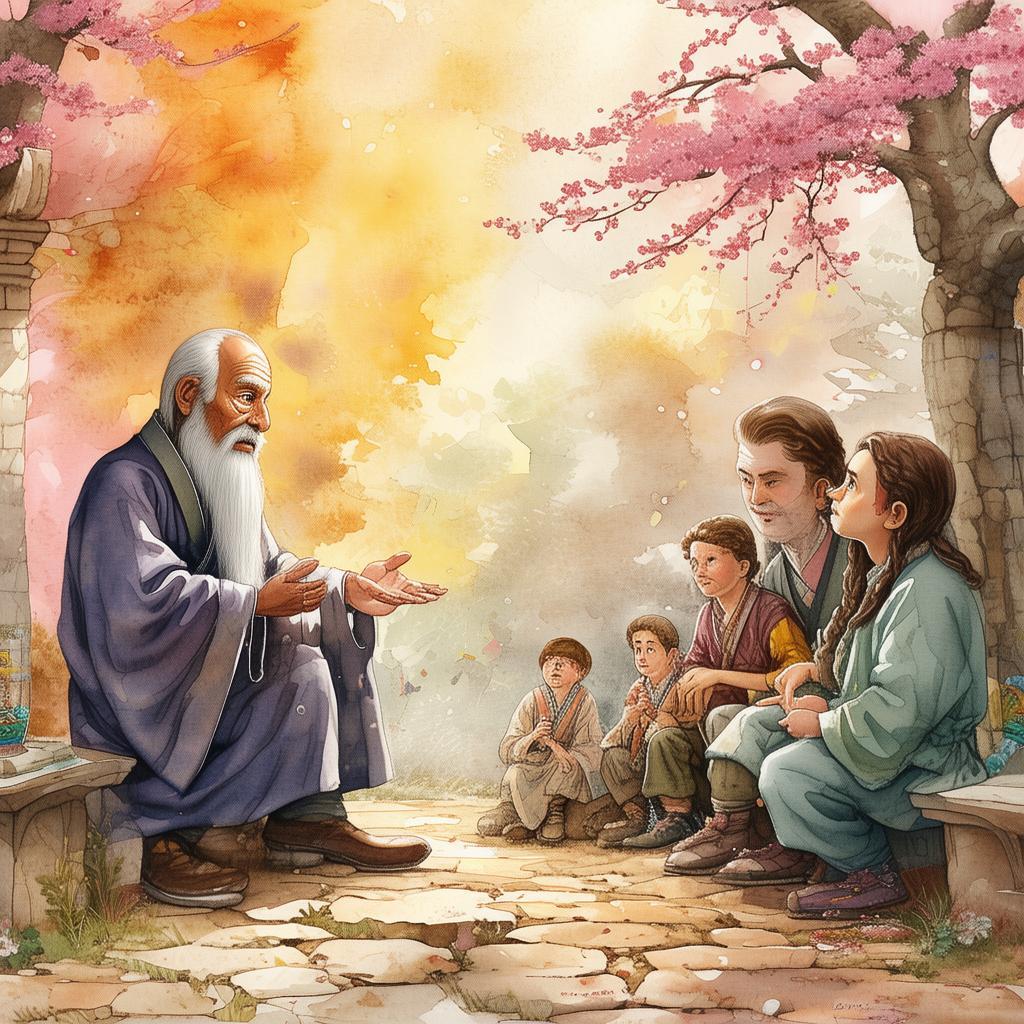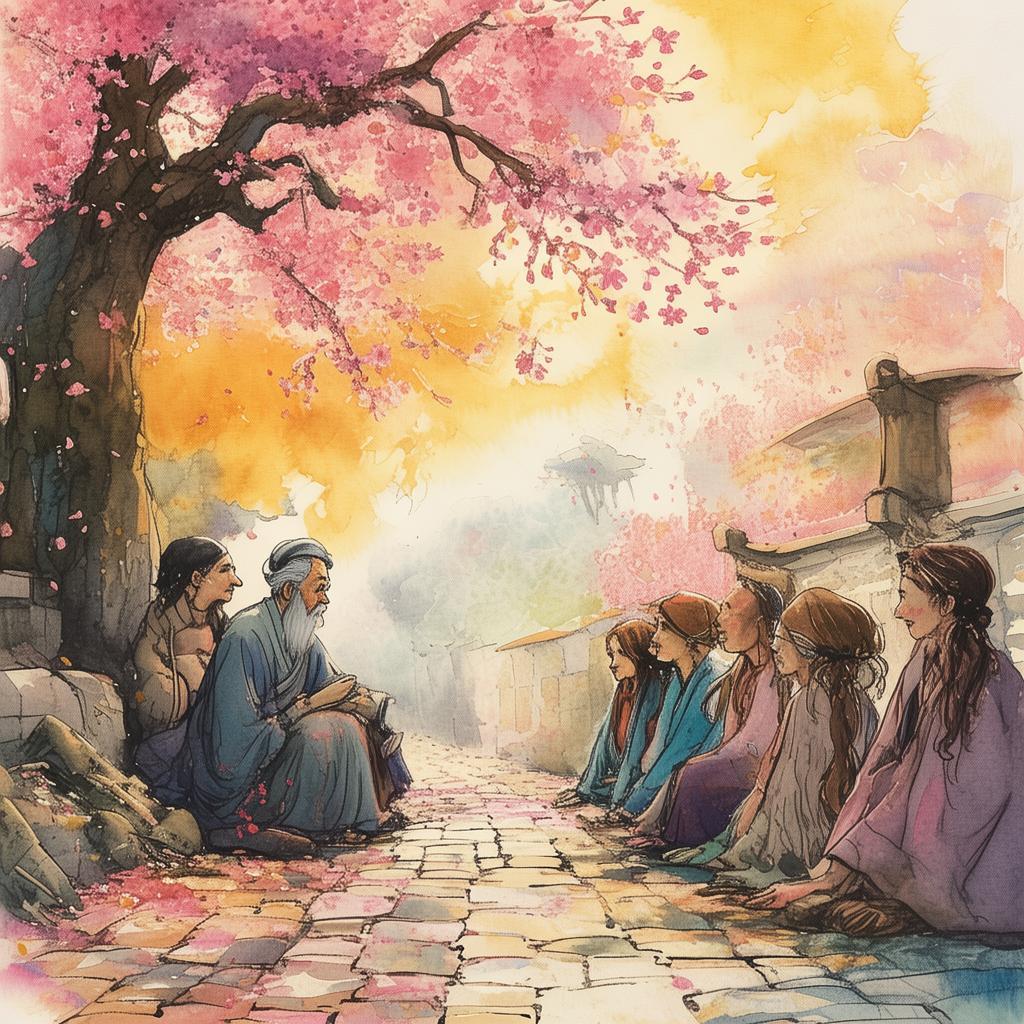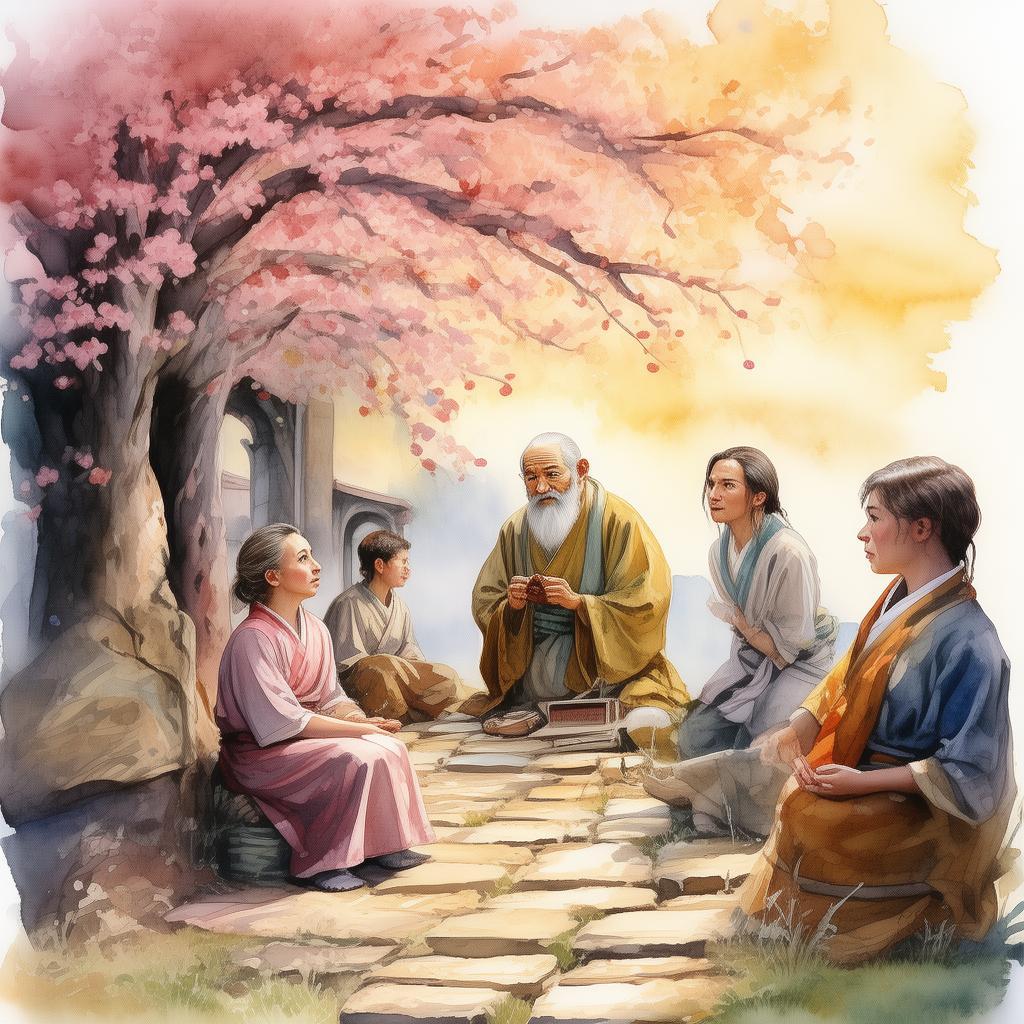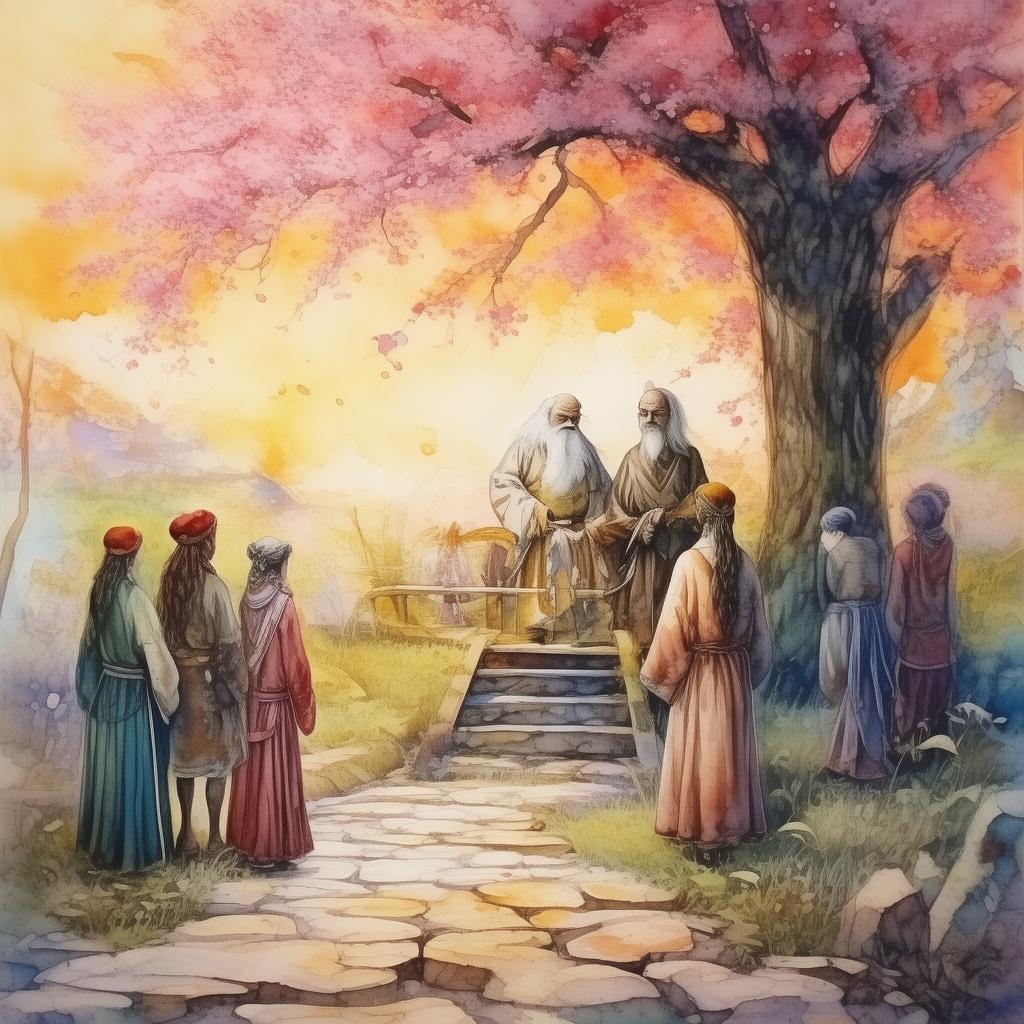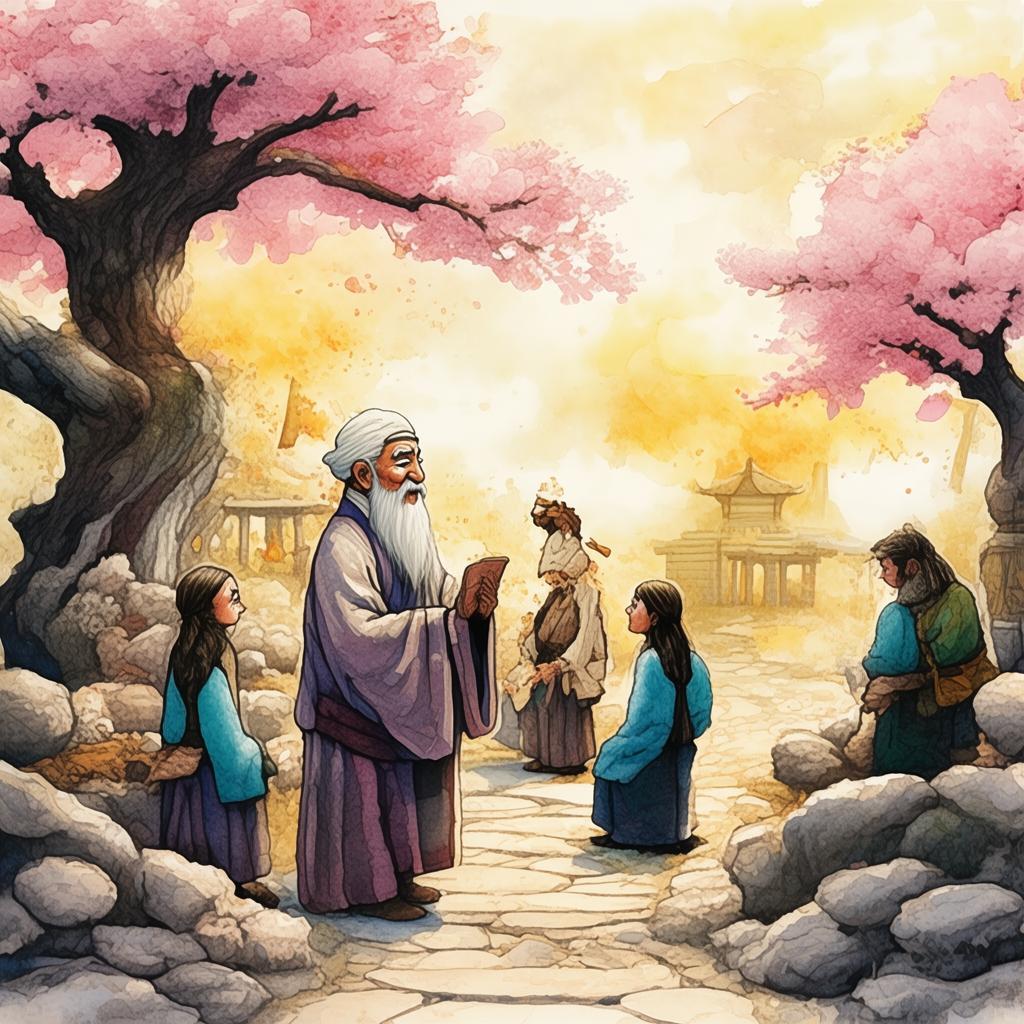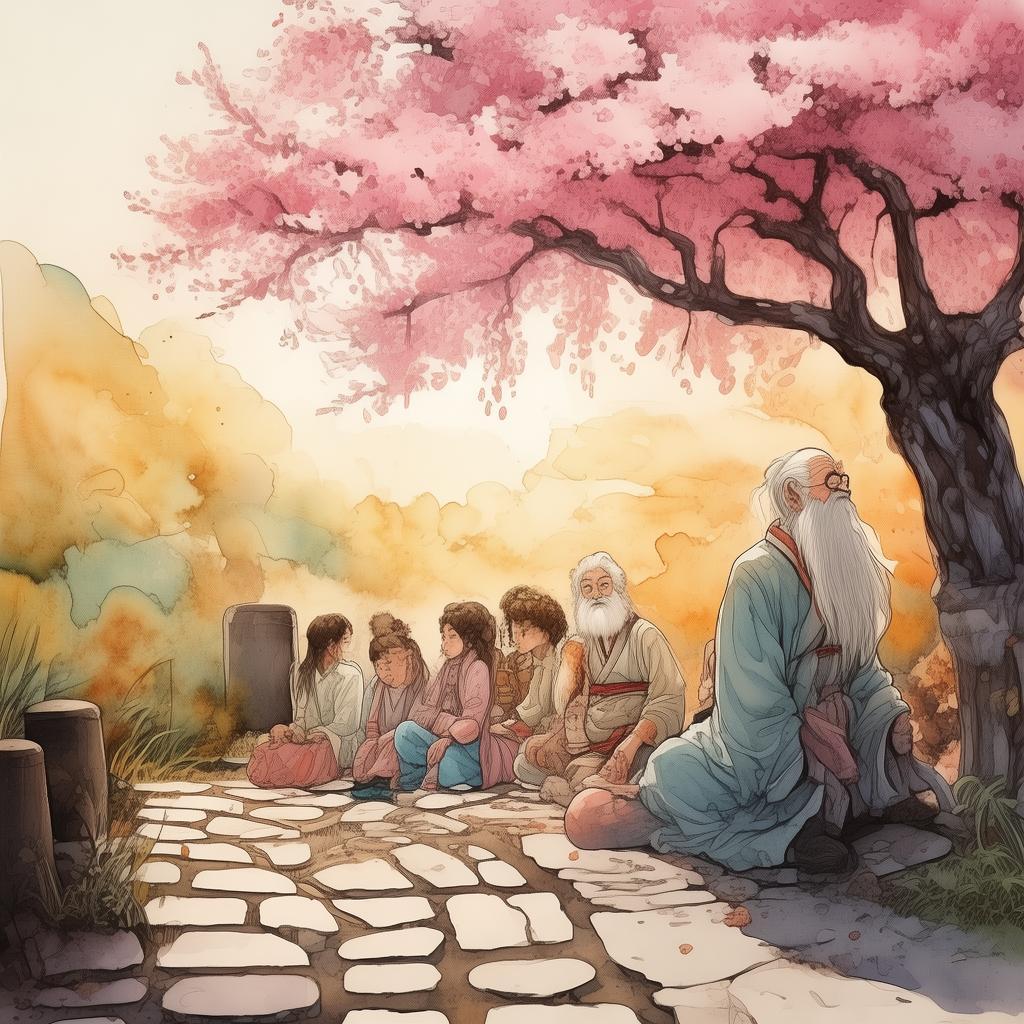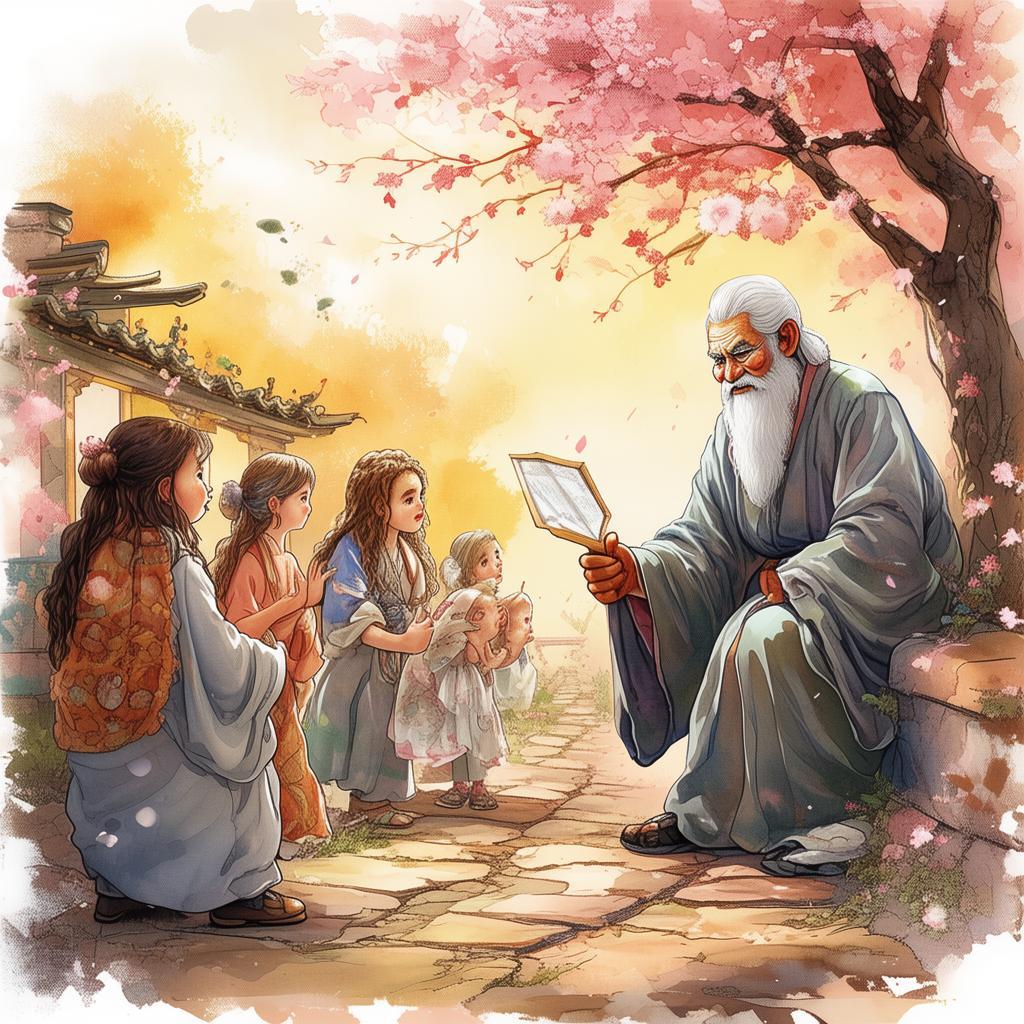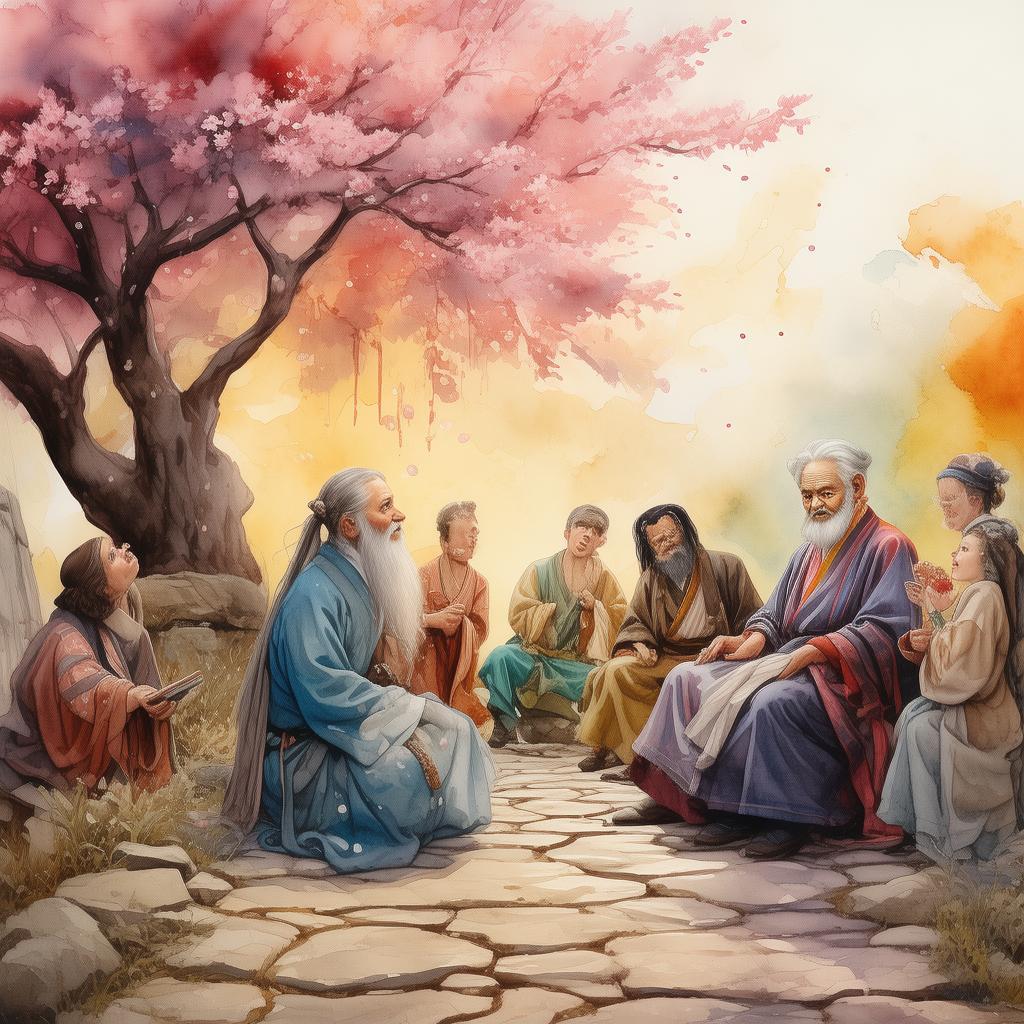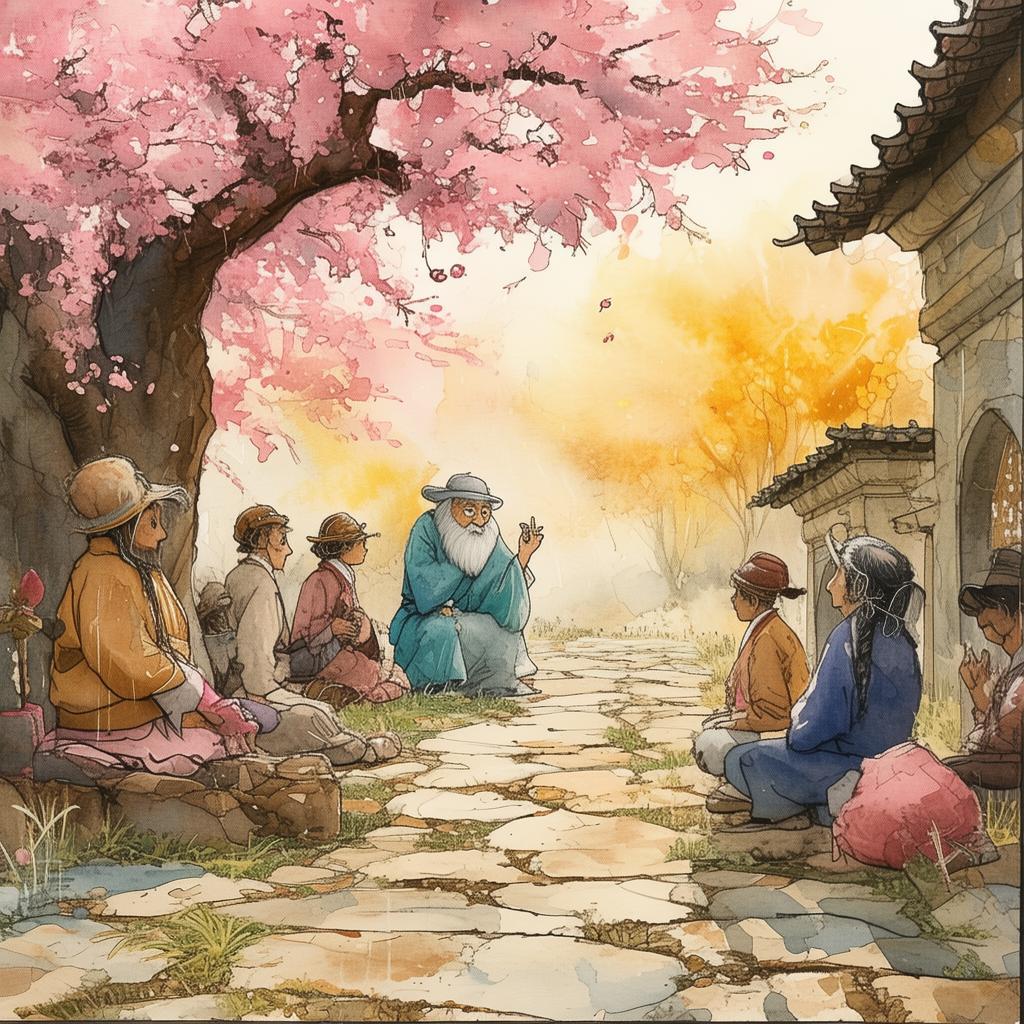The Quest for Enlightenment: The Tale of the Scholar and the Mountain
In the ancient land of Jingdu, there lived a young scholar named Lin who was renowned for his insatiable quest for wisdom. His name was spoken with reverence, for Lin had the rare gift of understanding the deepest meanings behind the simplest of sayings. Despite his vast knowledge, Lin felt an emptiness in his heart, a void that only true enlightenment could fill.
One evening, as the sun dipped below the horizon, casting long shadows across the landscape, Lin found himself at the foot of an imposing mountain known as the Peak of Wisdom. It was said that at the peak, one could attain the ultimate enlightenment. The journey was fraught with peril, but Lin's resolve was unshakable.
The path up the mountain was arduous, winding through dense forests and over treacherous cliffs. As Lin climbed, he encountered many challenges. The first was a river that flowed swiftly, its waters too dangerous to cross. He sat by the river's edge, reflecting on the need for patience and perseverance. In that moment, he realized the first lesson of his journey: "Wait for the right moment, and the river shall part."
Continuing his ascent, Lin reached a cavern, its entrance dark and foreboding. Inside, a fearsome dragon lay coiled, its eyes gleaming with malevolence. The dragon's presence was a test of courage and bravery. With a deep breath, Lin approached the dragon, speaking with respect and calm. To his surprise, the dragon did not attack. Instead, it spoke to him of the importance of humility and understanding one's place in the world. "The wise know when to stand and when to step aside," the dragon's voice echoed in his mind. With this lesson, Lin pressed on.
The third challenge came in the form of a wise old hermit living in a humble hut at the mountain's midpoint. The hermit, wise beyond his years, challenged Lin to a game of riddles. Each riddle the hermit posed represented a different aspect of wisdom. Lin solved each one with ease, but the final riddle stumped him. The hermit smiled and explained, "True wisdom lies not in the solving of riddles, but in understanding the questions themselves." This revelation taught Lin the value of introspection and self-awareness.
As night fell, Lin reached the final stretch of his journey. The air grew colder, and the path steeper. He could see the peak of his destination, but the final obstacle stood before him. A great cliff, with a narrow path that seemed almost impossible to cross, loomed. Lin stood at the edge, feeling a surge of doubt. He had come so far, and now his resolve was being tested.
It was then that he heard a voice, soft and gentle, like the whispering of leaves in the wind. "The true path to enlightenment is not in crossing the cliff, but in recognizing that the path is already within you." Lin realized that the entire journey had been a metaphor for his own life. The wisdom he sought was not outside of himself, but within his own heart.
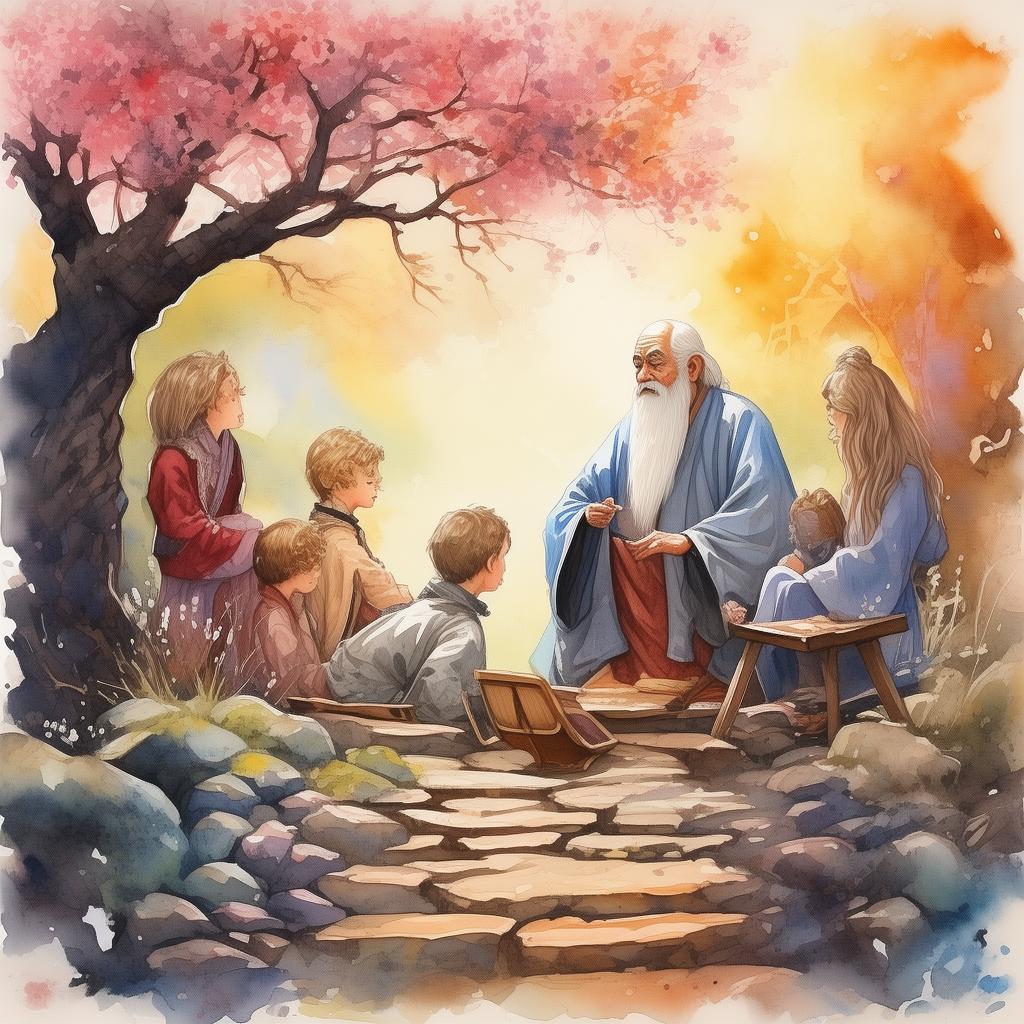
With newfound clarity, Lin stepped back from the cliff, facing the mountain as a whole. He found that the path, which had seemed so narrow and treacherous, had been there all along. He walked up to the peak, and as he stood at the very top, the world below him lay spread out in all its beauty.
Lin had found what he sought not through any external journey, but through the inner journey of self-discovery. He had discovered that true wisdom is the understanding that the path to enlightenment is a journey within oneself.
The tale of Lin's journey spread far and wide, becoming a proverbial journey that many sought to emulate. The story, known as "The Quest for Enlightenment," became a symbol of the importance of self-reflection and the realization that wisdom is not something to be sought outside, but within.
In the end, Lin returned to his life, not as a scholar of vast knowledge, but as a sage who had found enlightenment. His journey, once a quest for wisdom, had led him to a profound understanding of life's true essence, encapsulated in the ancient proverb: "The path to enlightenment is within."
✨ Original Statement ✨
All articles published on this website (including but not limited to text, images, videos, and other content) are original or authorized for reposting and are protected by relevant laws. Without the explicit written permission of this website, no individual or organization may copy, modify, repost, or use the content for commercial purposes.
If you need to quote or cooperate, please contact this site for authorization. We reserve the right to pursue legal responsibility for any unauthorized use.
Hereby declared.
